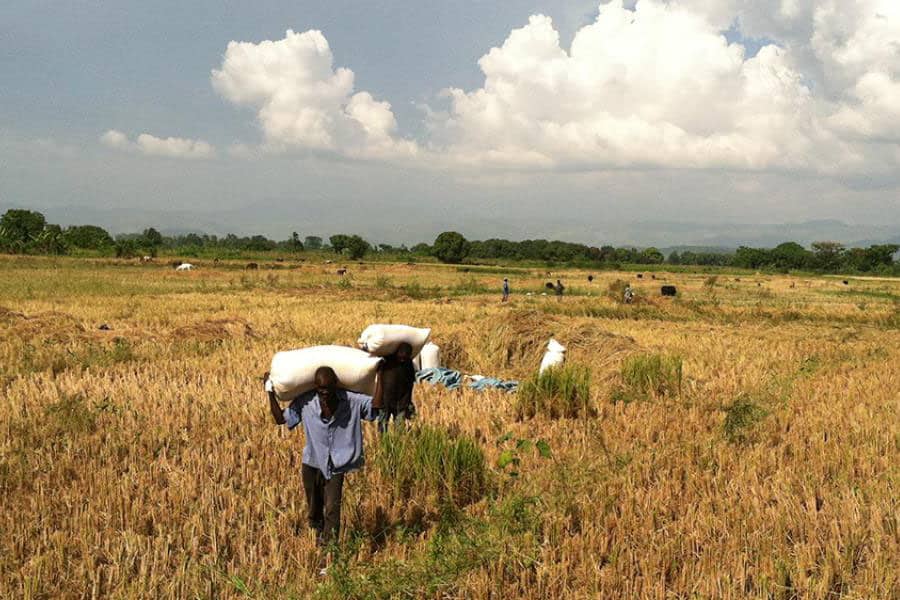
Farmers on small plots of land are essential to the DRC’s agricultural system and play a major role in all three facets of food security: food production, distribution, and consumption. However, a significant barrier still exists for Smallholder farmers: limited access to productive resources. The term “resource” refers to any material or immaterial asset, such as land, agricultural machinery, money, agricultural supplies, knowledge or the ability to make decisions, or time. To have access to something means you can obtain it, use it, and have some say in how you utilize it. Farmers already see climate change as a risk to agricultural food production, and the problem has deteriorated with the COVID-19 epidemic, which has thrown off input supply chains and the planting schedule.
Opportunities and Challenges
Agriculture in the Democratic Republic of the Congo has been proclaimed a priority by many different administrations throughout the years as a means to combat poverty. They said they would improve infrastructure for farmers, put more money into agriculture, and find more ways to add value to crops and harvests. However, the COVID-19 outbreak and political instability in eastern DRC and Ituri are expected to exacerbate the issue by interfering with government plans and its sources of funding. Remember that decades of civil unrest, conflicts, wars, and instability in DRC followed the deterioration of the agricultural sector, which started primarily with the Zairianization of 1973. There are also issues with corruption, misappropriation of monies meant for social programs like agriculture, and land disputes and land grabs.
Access to Agricultural Information, Technologies, and Credit
Post-harvest technology, enhanced plant varieties, and IPM strategies are all examples of agricultural innovations. For instance, Bacillus amyloliquefaciens has been discovered to have promising potential as a biocontrol agent against various plant fungal diseases in corn-based farms. As a common method of soil conservation, less tillage helps keep soil from washing away and allows for more water to be stored in the ground. Despite the better yield potential of modern maize, rice, bean, and cassava varieties compared to traditional varieties, adoption of these technologies has remained low in DRC in an effort to enhance food security. As the year 2000 begins, thousands of smallholder farmers in the Congo have gathered together in farmers’ “groups and field farmers’ schools” to learn the Integrated Pest Management (IPM) techniques, promoted by FAO, as part of a large urban and peri-urban horticulture project for sustainable vegetable production.
Unfortunately, most of the new techniques these farmers used throughout the project’s implementation (2000-2012) have been abandoned in favor of more conventional methods of crop production. This dismal performance prompts inquiries into the decision-making processes of smallholder farmers and the obstacles they confront in gaining access to, controlling, and benefiting from sustainable agricultural advances. This holds true because farmers’ willingness to pay for new products and agricultural machinery may be affected by their awareness of the benefits they would get from using such products.
Several related variables account for the difficulties farmers in the DRC have in gaining access to relevant data. First, owing to dysfunction and low endowment of extension service, the link between research institutes and farmers has been severed, if not ruptured. Major barriers to the adoption of agricultural technology and agricultural machinery include a lack of knowledge and inadequate extension services, both of which slow the effective attainment of the established goals of enhancing the socioeconomic welfare of smallholder farmers. Second, the government has not been able to build up an information and alert system, and regularly gather data to evaluate and comprehend farmers’ difficulties, due to the low percentage of the national budget allotted to agriculture and also insecurity in rural regions. Third, smallholder farmers have a harder time transporting their goods to markets because of deteriorating roads and a lack of interprovincial connectivity.
Access to finance
Food insecurity in the area is only one of the many potential side effects of this situation, along with issues like extreme price swings in the agricultural product market. In addition, there is a favorable correlation between having access to financial resources and enhancing agriculturally-based food security. This means that smallholder farmers who have access to financing in order to buy inputs like tractors, farm implements, enhanced technology, fertilizers, and irrigation equipment enjoy higher crop yields and thus higher incomes. Farmers who diversify their crops are better able to weather the effects of climate change and insect infestations.
The socio-economic, technical, and institutional elements that affect smallholder farmers’ access to the credit include education, application processes, access to land, income level, farm size, participation in economic organizations, savings, crop cultivated, interest rate, and distance to the bank. Moreover, the high-interest rates, the absence of collateral, and the lenders’ assessment of the hazardous nature of agricultural operations have all contributed to the farmers’ reluctance to seek credit or to be authorized for a loan. Those in need of Massey Ferguson tractors for sale, New Holland tractors for sale, farm implements or combine harvesters in the Democratic Republic of the Congo may continue to rely on Tractors PK to connect them with reliable suppliers at affordable prices. As the biggest exporter of agricultural machinery from Pakistan, Tractors PK is also the most trusted source for tractors in DRC. When compared to the competition, our tractors are of the best value.